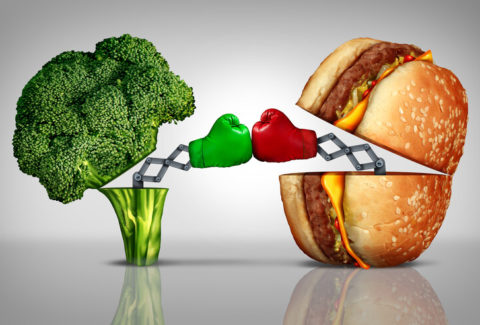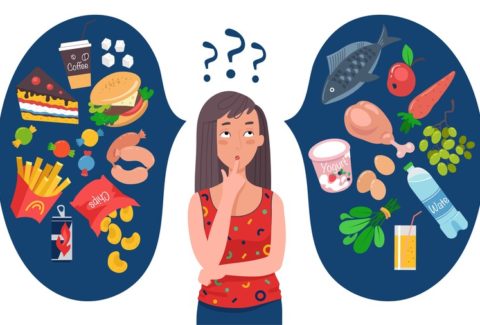Unworthiness and Avoidance
- What are your overall thoughts on these first three levels of Consciousness?
- Where do you see yourself?
- Where do you see your patients, and what does it take for you to help them shift to a higher level of Consciousness?
In our previous article, 3 Life Interfering Levels of Consciousness, we asked you to ponder upon the above three questions. We also explained that these questions would become clearer as we continue with the articles in this series that explore CBT and Consciousness.
In the article, 3 Life Interfering Levels of Consciousness, we introduced the first three levels of Consciousness that are life interfering. Those three levels of Consciousness are; Self-loathing, Blameworthiness, and Hopelessness. In this article, we are going to explore the next two; Unworthiness and Avoidance:
- Unworthiness:
We may know some individuals who feel unworthy, holding themselves in contempt, or disdain. These individuals view life as a calamity, catastrophe, or a tragedy. As such, they are almost always sad, sorrowful, or grieving, all of which are the characteristics of this degree of Consciousness. Regret is, therefore, their predominant emotion, and they tend to go through life, feeling down, disheartened, dispirited, and tend to go through life through the process of discouragement or despondency. Furthermore, these individuals often talk about loss, or mourning, and are living, for the most part, in their past [1]. They tend to identify with their past, with their failures, and may unconsciously accept failure as their way of being. Because they are always in their past, they continuously live life accumulating loss after loss, including losing money, their health, jobs, friends, and opportunities. This is the result of what they have been creating with their thoughts and feelings, except this understanding will be far out of reach for them. It will be very difficult for these individuals to move up from this degree of Consciousness because their losses are often viewed or used as the justifications, reasons, or even explanations for why they are prone to sadness, sorrow or grief [2]. As such, any unwanted news, any losses of theirs or of others, any coincidental dates, or places, or situations make them relive their losses, despite the fact that they were already living their losses in their head. Each life situation or circumstance becomes, in their mind, a valid explanation that helps them justify why they can openly talk about their losses from forty years ago. The saddest part is that any help or mental health services they receive serves to deepen and reinforce their beliefs that they will, “never get over these kinds of things,” or that they are “broken.” This commonly used phrase is also one of the most frequently told lies out there and damages many patients who come to us to receive help. One of the reasons why this happens is because of the level of Consciousness of many mental health professionals. It is not that “we never get over these kinds of things,” rather, it is that we are convinced that whatever thought, feeling, or action we experience, is an accurate representation of “what happened” to us.
Here’s an example: Many individuals feel depressed after their partner breaks up with them. At times their partner calls them, apologizes, cries, and asks them for forgiveness. They then end up going out for dinner, and their state suddenly changes, no more depression. They shower, put their best outfit, and spend the whole night feeling like they are in heaven.
Individuals at this level of Consciousness not only focus on their past, or their losses, but also perceive such losses as final and think that they will never be able to make up for them. This is part of them viewing life as being tragic. “This was the love of my life. I’ll never find love again.” Or, “My mother was all I had. Now, life will never be the same.” And, they truly believe it, they live their life accordingly, and they always find a way to prove it to themselves, again, and again, and again, which reinforces the belief. - Avoidance
We all know individuals who come across as harsh, cruel, and punitive. They tend to view life as being startling, terrifying, and frightening. They are, therefore, driven by fear, which seems to be their predominant emotion. This is that set of individuals who are an “anxious type.” Because of fear, they tend to cope with life by avoiding, and/or by withdrawing themselves from certain situations or people instead of facing them. To move up from this level of Consciousness, we must first understand that the people we admire or praise for being “heroes” did not become heroes by never experiencing fear. Rather they acted, moved, and faced the situations, despite the experience of fear. In other words, they learned to understand that there is actually no such thing as fear. Many of us now know that we are not afraid of anything that is real, but of things that are imagined. We are not really afraid of touching a hot stove, because we already know what will happen if we choose to touch a hot stove. As such, it fails to follow logic to call this fear. We call this knowing, or common sense. When we fear, it is because we are imagining [3]. If only we could remind ourselves that, “hey, this is only in my imagination.” At least, we could then choose to either act, regardless of the perceived fear; or choose to follow our imagination. Of course, with time, we will find it silly to keep living our life based on a type of imagination that is not serving us; and only then, will we move up from this level of Consciousness. It takes so much energy to live like this; being anxious all the time, imagining danger everywhere, and seeing every single aspect of the world as frightening. The way we run one area of our life, is the same way we run other areas of our life. As such, whoever is at this level of Consciousness tends to view every single area of their life through the lens of fear. These individuals, therefore, tend to be highly stressed, and as such experience, chronic insomnia, and physical and mental health conditions.
Here’s an example: we invited a colleague to a professional panel to informally talk about what it is like to be a professional in the United States. He asked me millions of questions, to which, we took time to answer. Several months later, and just one week prior to the panel day, he texted us, saying:
“I still feel I am not too clear on what I am going to be doing. Can you please give me more information so I know what to expect?” It was clear that the more information we would give him, the more we would help reinforce his avoidance mechanism.
“No additional information since the last time we talked. Next step is for us to experience it and take it from there,” we texted back.
“I’m just not sure what I am doing,” he replied.
“No need to do it, friend. Please no worries. We’ll be able to work on a different project together, in the future.”
Individuals at this level of Consciousness limit their own growth. This was the case of our colleague. We know he runs his life that way, but we are unable to do any differently than our level of consciousness permits. And to go from one level of Consciousness to the next requires much more than someone preaching at you. It requires some inner work, which each individual must be willing to undertake.
- What are your overall thoughts on these two levels of Consciousness (Unworthiness and Avoidance)?
- What do you see yourself?
- Where do you see your patients, and what does it take for you to help them shift to a higher level of Consciousness?
These questions will become clearer as we continue with our subsequent articles in this series. Meanwhile, we invite you to continue to ponder upon them; and we look forward to hearing from you.
See you soon,
Karen and Mardoche
P.S. Please join us for our CBT module on CBT and Perception, scheduled for March 17, 2021 7pm EDT. We look forward to welcoming you.
[1] Haley, Eleanor. “Mourning the Past While Living in the Present.” Whats Your Grief, 16 Apr. 2020, whatsyourgrief.com/mourning-the-past/.
[2] Allen, Terina. “5 REASONS MISERABLE PEOPLE ARE MISERABLE.” Terina Allen – Developing Strategic Leaders Who Can Take Their Careers & Organizations to the Next Level, 6 Sept. 2019, terinaallen.com/5-reasons-miserable-people-are-miserable/.
[3] Tsaousides, Theo. “7 Things You Need to Know About Fear.” Psychology Today, Sussex Publishers, 19 Nov. 2015, www.psychologytoday.com/us/blog/smashing-the-brainblocks/201511/7-things-you-need-know-about-fear.









